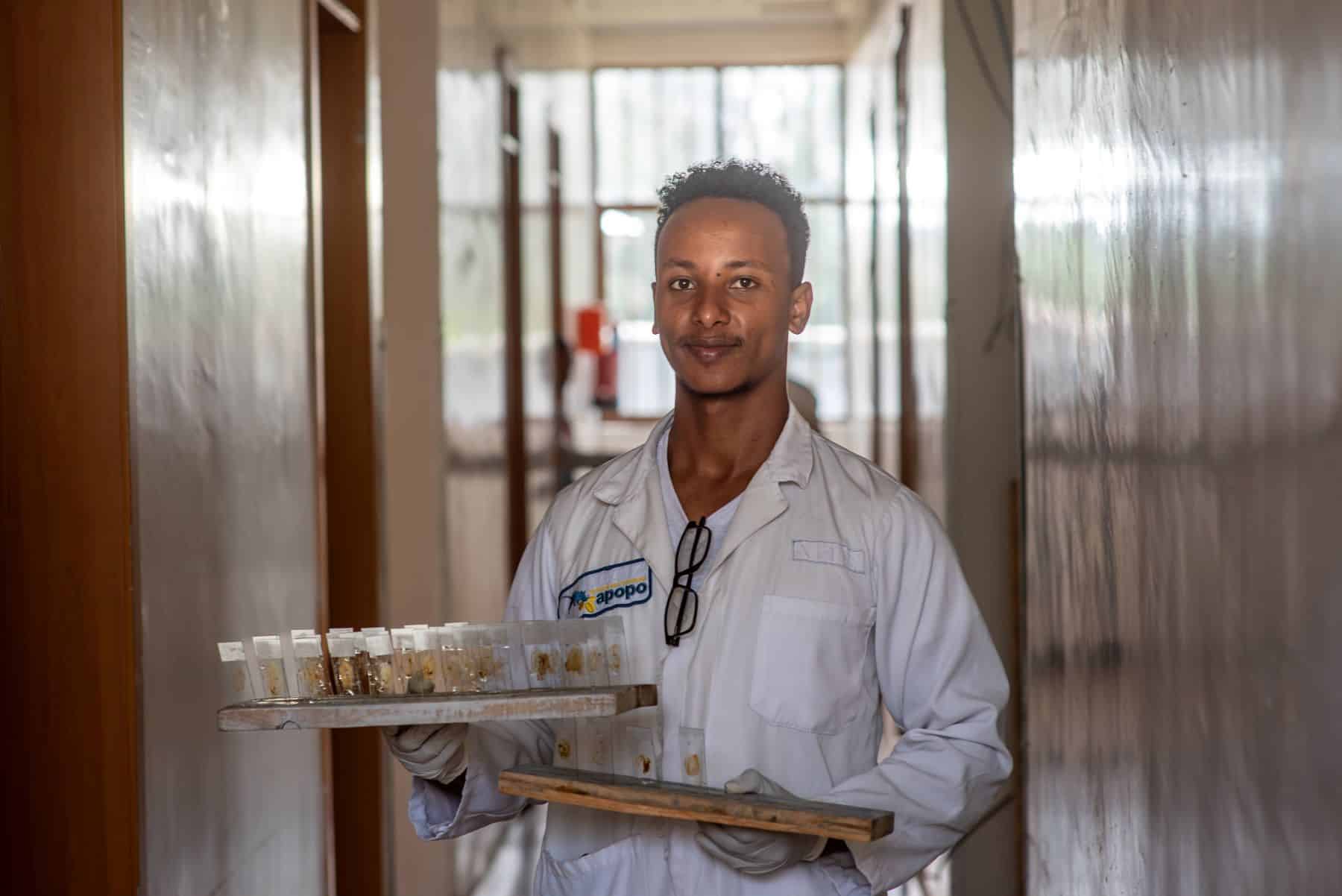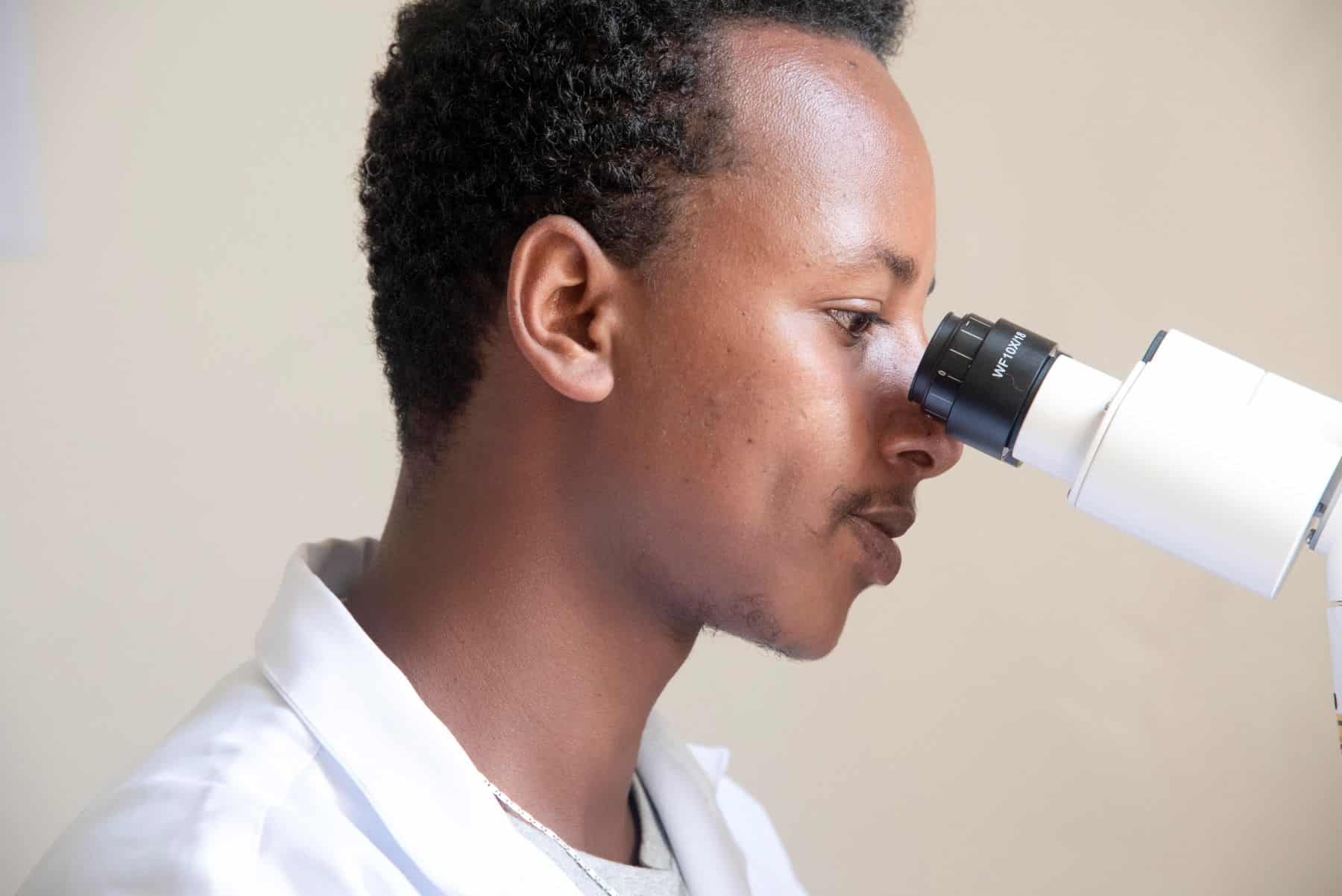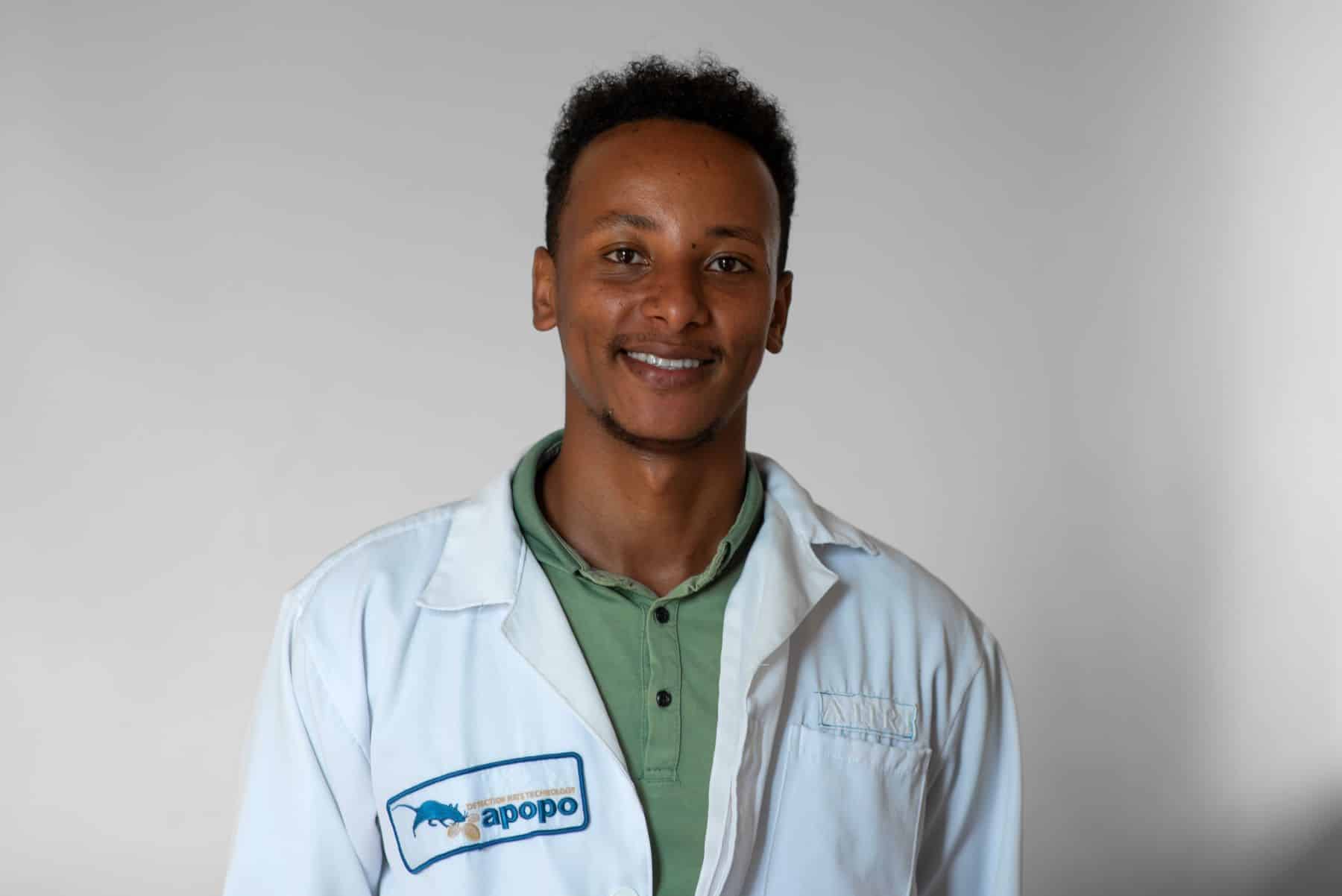Humans of APOPO: Henok on Leading TB Detection in the Lab
Henok, a 31-year-old microbiologist from Addis Ababa, Ethiopia, has worked with APOPO since 2018. With experience in both research and diagnostics, he now leads the lab team and plays a key role in the collaboration between technology and trained rats to detect tuberculosis that other systems might miss.
“I hold a diploma, BSc, and MSc in laboratory technology and microbiology. Before I joined APOPO, I worked at ALERT Hospital, where I was involved in everything — from collecting samples to delivering results in microbiology, hematology, and parasitology.
When I saw the job posting for APOPO, I was curious. I knew rats were used in medical studies, but detecting TB? That was new to me. I started reading about the organization, and what I found was fascinating. I realized this was not just a job and that it was also a chance to make a real difference.
My daily routine depends on the lab schedule. We take turns managing different parts of the process, like sample collection, preparation for rat screening, confirmation testing, and reporting. My favorite part is looking through the microscope. When I see the bacilli, I know we’ve helped identify a case that might have been missed.

The rats are fast and affordable. Their performance can vary slightly depending on their mood, but overall they are very reliable. My friends and family used to laugh when I told them I worked with rats, but I explain how they help find TB cases and save lives. It’s taken time, but they’ve started to understand.
TB remains a big challenge in Ethiopia. I’ve seen people suffer for months without a diagnosis. A friend of mine went nine months before being diagnosed. That’s why I always try to raise awareness. There’s a huge information gap.
We mostly use microscopy, but for children, the elderly, or immunocompromised patients, we turn to GeneXpert. It’s more advanced and costly, so we use it wisely. I also understand the science behind drug resistance which is important for what happens after TB is detected. When people stop treatment midway, the bacteria adapt, and the drugs no longer work. It’s very important to complete treatment without stopping.

I haven’t yet met a patient we’ve helped, but I hope to one day. Knowing our work is saving lives is enough to keep me going. I want to see APOPO expand to more regions. We’ve already made a difference, but there’s so much more to do.
Our team works well together. We all share one goal: to save lives. And I’m proud to be part of that effort.”

